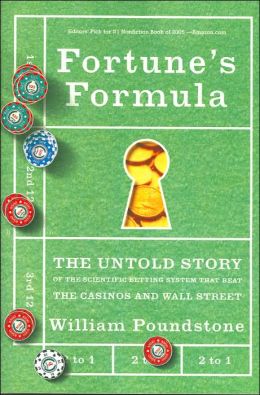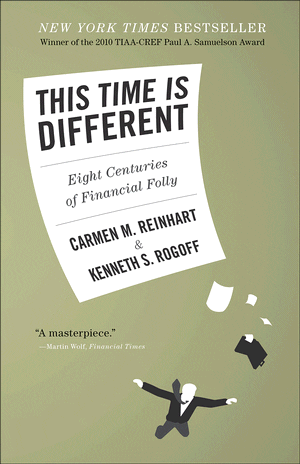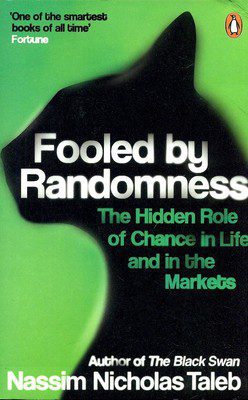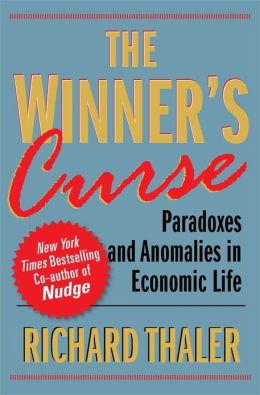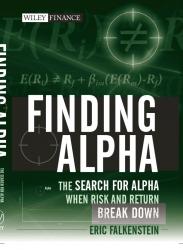Today, our round-up of the best books for hedge fund investors and managers to read takes in subjects such as the Kelly Criterion, the role that luck plays in the markets, and the secret of how Warren Buffett manages to make so much money.
Fortunes Formula: The Untold Story of the Scientific Betting System That Beat the Casinos and Wall Street
William Poundstone (Hill & Wang)
If you know anything about the history of gambling, then you’ll probably know the story of how an MIT math professor called Ed Thorp made a fortune in Vegas casinos by a technique known as ‘card counting’. This phrase became household knowledge with the book he published the following year called “Beat the Dealer”. Later, along with the father of information theory Claude Shannon, Thorp set about using maths to beat the roulette tables using a strategy called The Kelly Criterion.
This strategy has since become the basis of many a successful investment strategy, and has been used to highly lucrative effect by the likes of Warren Buffett (more on him later), Jim Rogers, and Thorp himself with his own early hedge fund. It’s essentially a betting equation that tells you how much to bet on each round of a profitable gamble so as to maximize the growth rate of your wealth.
While this book does give a good explanation of how the equation works, it’s not really a technical book, instead telling the story of the Kelly strategy from its inception, through its many high-profile users (and non-users, such as the doomed hedge fund Long Term Capital Management), and the academic debate around the formula.
This Time Is Different: Eight Centuries of Financial Folly
Carmen M. Reinhart & Kenneth Rogoff (Princeton University Press)
For centuries, countries have been stuck in a pattern of lending, borrowing, crashing, and recovering – lurching from one financial crisis to another. Every time, experts have always maintained that “this time is different” (hence the title) and that the financial system has changed to the extent where the old rules no longer apply. In this book, economists Carmen Reinhart and Kenneth Rogoff aim to prove that, in fact, the same rules always apply, and that the experts are wrong.
They do so by looking at a history of financial crises, from banking panics, currency debasements and government defaults to inflationary spikes and the recent sub-prime mortgage meltdown, drawing lessons from history to show how little we appear to have learned – and how we might improve on this in future.
The Signal and the Noise: Why So Many Predictions Fail but Some Dont
Nate Silver (Penguin)
The mathematician Nate Silver made his name by developing an innovative system for predicting baseball results, predicting the 2008 election with more accuracy than any other analyst, and through the explosive popularity of his blog. In this book, Silver shows us how to filter out the ‘noise’ of data to distinguish a signal, using his unique knowledge of probability, uncertainty, and human nature.
On the way, he speaks to some of the most successful forecasters around, from disciplines as diverse as weather, baseball, the stock market, poker, and politics. Essential reading for anyone who wants to improve the accuracy of their predictions, and become better at determining which forecasts to listen to, and which to take with a pinch of salt.
Fooled by Randomness: The Hidden Role of Chance in Life and in the Markets
Nassim Nicholas Taleb (Penguin)
Having made his name with the bestselling book The Black Swan, Taleb uses this book to expound his thinking on the issue of the role that luck plays in life and the markets – and particularly how it is perceived. Often we will hear about traders who are ‘talented’ or entrepreneurs that have ‘vision’, when their extraordinary performance is more commonly down to good fortune than skill. Like Nate Silver, he believes that a lack of understanding in terms of probability is the reason why so many bad decisions are made, with people mistakenly believing that random events are non-random and therefore look for other reasons where none actually exist. The aim of this book is to help people, and particularly investors, to recognize randomness when they encounter it.
The Winners Curse: Paradoxes and Anomalies of Economic Life
Richard H. Thayler (Princeton University Press)
In The Winner’s Curse, Richard Thaler makes an argument against accepted economic wisdom by shining a spotlight on some of the many paradoxes that are present in the majority of transactions. An example that shines out from this book is that of the winners at auctions often turn out to be the losers – because they have suffered the “winner’s curse” and paid over the odds. It also covers topics such as the reasons why gamblers tend to bet on long shots at the end of a day of losses, or why sports fans will only pay up to $200 for a Super Bowl ticket, but wouldn’t sell one they owned for less than $400. Through these examples, he debunks the concept of market efficiency, which still to this day looms large in mainstream economic thinking.
Buffetts Alpha
In keeping with the theme of luck versus skill that has pervaded much of the recent financial best-sellers, this study from AQR Capital Management does a revealing analysis of Warren Buffett and his phenomenal success in the markets.
The debate over the secret of Buffett’s alpha-success has been raging since 1984, when efficient markets advocate Michael Jensen questioned whether his techniques would have worked without the intervention of good fortune.
The point of this study is to prove one way or the other, and in this case the verdict comes in very strongly on the skill side, and that his unique approach to strategy is a major contributing factor to his financial success. Furthermore, this study even suggests that this success is something that anyone could replicate given the right approach. Although it’s not exactly light reading, for anyone looking to gain a deeper knowledge of the markets and money management techniques, this is essential reading.
Finding Alpha: The Search for Alpha When Risk and Return Break Down
Erik Falkenstein (Wiley)
One thing that it’s important to be aware of is that accepted thinking on economics and the workings of the markets is frequently wrong. Finding Alpha demonstrates this with specific regard to a flaw in the Capital Asset Pricing Model that was uncovered in 1992. This meant that the model of risk and return that hat been taught in academia for decades was demonstrably and profoundly wrong.
This led many in the investment industry to ask “how can I find alpha if risk can’t be measured?”, and in this book, Falkenstein attempts to answer this question. His proposed solution is to replace the old assumptions with new ones, such as replacing the constant of greed with that of the innate human desire for certainty and hope.
He believes that there are more productive ways to search for alpha than by seeking out risk-adjusted returns, with practical examples of how one might go about this. The key here for Falkenstein is the concept of comparative advantage, which applies equally in the financial markets and in life. By this he means sticking to things that you enjoy, that you are good at, because these are the things where it seems more worth it to make the extra effort that is required to succeed – in the markets, and elsewhere.
I am a writer based in London, specialising in finance, trading, investment, and forex. Aside from the articles and content I write for IntelligentHQ, I also write for euroinvestor.com, and I have also written educational trading and investment guides for various websites including tradingquarter.com. Before specialising in finance, I worked as a writer for various digital marketing firms, specialising in online SEO-friendly content. I grew up in Aberdeen, Scotland, and I have an MA in English Literature from the University of Glasgow and I am a lead musician in a band. You can find me on twitter @pmilne100.






























